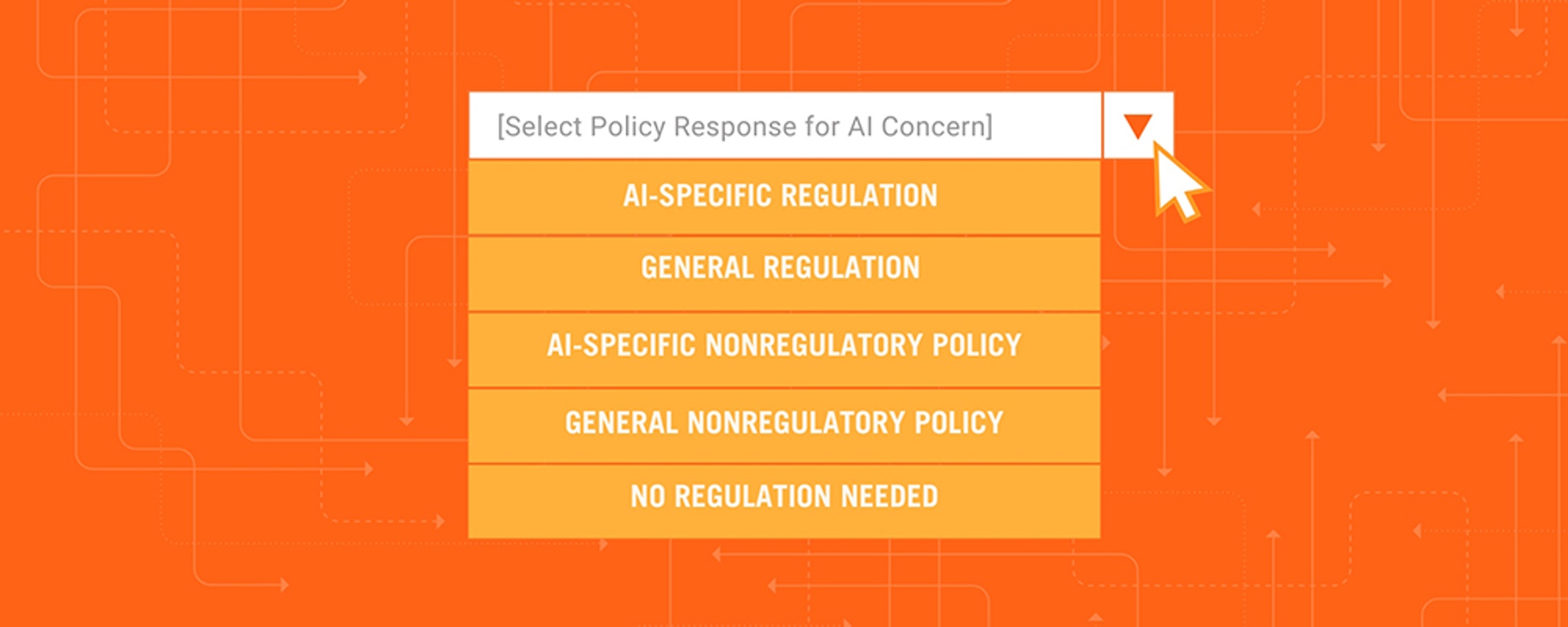Artificial Intelligence
Navigate forward to interact with the calendar and select a date. Press the question mark key to get the keyboard shortcuts for changing dates.
Navigate backward to interact with the calendar and select a date. Press the question mark key to get the keyboard shortcuts for changing dates.
As every sector of the global economy and nearly every facet of modern society undergo digital transformation, ITIF advocates for policies that spur not just the development of IT innovations, but more importantly their adoption and use throughout the economy. In the area of artificial intelligence, ITIF studies issues related to competitiveness, governance, ethics, development, and adoption.

Vice President and Director, Center for Data Innovation
Information Technology and Innovation Foundation
Read BioFeatured
More Publications and Events
March 5, 2026|Events
Context Matters: Building Trust in Digital Content
Join ITIF and the Coalition for Content Provenance and Authenticity (C2PA) for a timely discussion on how content transparency can strengthen trust across the digital ecosystem.
February 19, 2026|Blogs
Hyundai Motor’s Humanoid Robot Debate and Korea’s Real AI Challenge
While the Hyundai Motor case now sits at the center of Korea’s AI jobs debate, the evidence suggests that the nation’s more immediate constraints are weak productivity growth and uneven labor-market adjustment—not large-scale technological displacement. How Korea responds will shape its competitiveness in a high-cost, aging manufacturing economy under intensifying global competition.
February 5, 2026|Reports & Briefings
Public Sector AI Adoption Index
Governments are entering a critical phase in the adoption of AI. It is already contributing to everyday public sector work, and the question is no longer whether to adopt AI, but how to do so both effectively and responsibly. The Public Sector AI Adoption Index 2026 focuses on the human side of AI adoption, examining how it is experienced by public servants every day.
February 4, 2026|Op-Eds & Contributed Articles
The Sane Insanity of Digital Sovereignty
Matthew Kilcoyne in World Commerce Review argues that Europe’s pursuit of digital sovereignty risks fragmenting the digital economy and weakening innovation, and instead calls for coordinated, interoperable infrastructure, open data flows, and shared standards to preserve scale, efficiency, and economic growth.
January 22, 2026|Presentations
Building Global Consensus on AI
Daniel Castro speaks about building global consensus on AI at a workshop hosted by Peking University.
January 20, 2026|Events
Advancing Multilateral AI Partnerships: A Pre-Summit Event for 2026 AI Impact Summit
Ahead of the 2026 AI Impact Summit in New Delhi, the Center for Data Innovation and The Dialogue are convening an official pre-summit event, sponsored by Google, in Washington, D.C., on January 20, 2026.
January 12, 2026|Blogs
Fact of the Week: Construction Industry Facing a 439,000-Worker Shortage Driven by the Growth of Data Centers
As of November 2025, with over 400 data centers currently under development, the construction industry is facing a shortage of roughly 439,000 workers.
January 8, 2026|Blogs
Ten Ways Policymakers Should Respond to the Grok Bikini Fiasco
The Grok bikini controversy highlights real harms from AI misuse, but it also shows that the right response is enforcing existing laws, holding bad actors accountable, and pursuing tech-neutral, proportionate policies—rather than rushing into broad, AI-specific regulation that risks undermining free expression and innovation.
January 7, 2026|Blogs
New York’s AI Safety Law Claims National Alignment but Delivers Fragmentation
New York’s AI safety law claims alignment with California, but its small deviations create duplicative state requirements that fragment U.S. AI policy and increase compliance costs without improving safety.
January 5, 2026|Blogs
Top 10 Tech Policy Pronouncements, Prognostications, and Questions for 2026
If the year ahead in technology and innovation policy lives up to its potential, it could be a consequential one because there is a long list of important issues on the table. Herein, we offer 10 that are on top of our minds.






